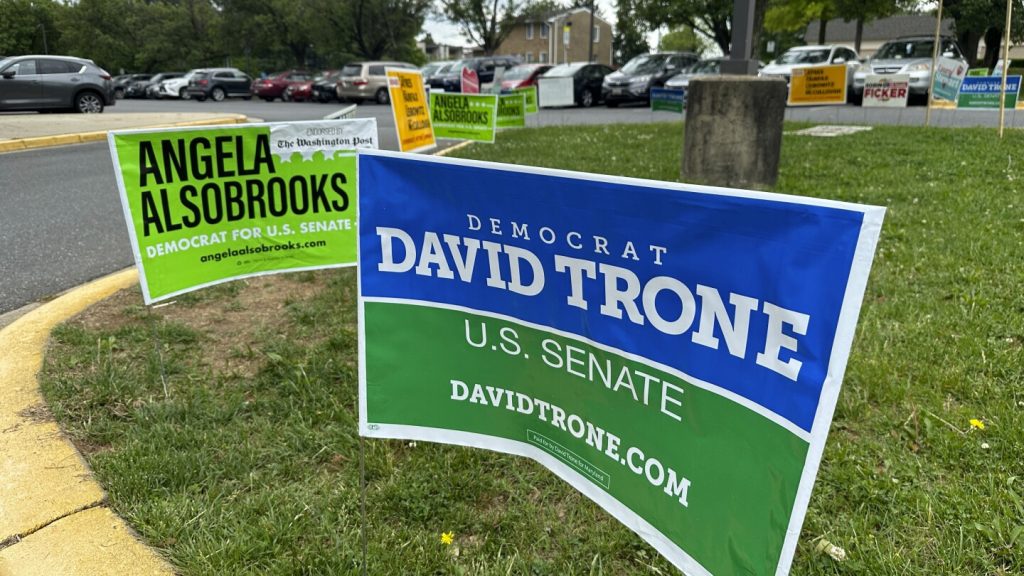In Tuesday’s primaries in four states, the U.S. Senate race in Maryland stands out as a key contest that could impact Democratic efforts to retain control of the Senate. Former Gov. Larry Hogan won the Republican primary, providing the GOP with a rare opportunity in a traditionally Democratic state. Hogan, a vocal critic of former President Donald Trump, may appeal to moderate and independent voters. His opponent, former state Rep. Robin Ficker, aligned himself with Trump in his campaign. Hogan’s victory was declared by the Associated Press based on early results that showed a significant lead over Ficker in both populous and conservative areas of the state.
In the Democratic primary for the U.S. Senate in Maryland, Prince George’s County Executive Angela Alsobrooks and U.S. Rep. David Trone are in a competitive race to succeed incumbent Ben Cardin, who is retiring. Alsobrooks, if elected, would become the state’s first Black U.S. Senator, representing a significant milestone. Trone, a co-founder of Total Wine, heavily funded his campaign with his own money. The Democratic establishment, including Governor Wes Moore and Senator Chris Van Hollen, has largely supported Alsobrooks, who also secured the endorsement of The Washington Post. The race between Alsobrooks and Trone reflects a broader competition between candidates from the state’s two most populous counties, Montgomery and Prince George’s.
In the Maryland primaries, Hogan’s lead over Ficker was particularly strong in populous and Democratic-leaning areas like Prince George’s County and Baltimore. Hogan’s early victory in the Republican primary indicates a potential shift in political dynamics within the state. Trone’s campaign, despite significant funding, faces tough competition from Alsobrooks, who has garnered support from key political figures and media endorsements. The outcome of the Senate races in both parties will have implications for the general election in the fall and could influence the balance of power in the Senate.
The Maryland Senate primaries are part of a broader trend in the 2024 election cycle, where key races across the country are shaping the political landscape. With control of the Senate hanging in the balance, both Democrats and Republicans are closely watching primary results and gearing up for competitive general elections. The outcome of the Senate races in Maryland will not only determine party representation in the state but also hold significance for national political dynamics. As voters across the country head to the polls in primary elections, the results will provide insights into the party’s strength and potential for success in the upcoming general election.
As the political landscape continues to evolve, candidates like Hogan and Alsobrooks are navigating complex terrain, balancing policy positions, endorsements, and financial resources. The Maryland primaries offer a glimpse into the broader trends shaping the 2024 election cycle, where candidates are vying for crucial Senate seats and positioning themselves for a competitive general election. With the Senate race in Maryland heating up and implications for the balance of power in the Senate, political observers are closely monitoring primary outcomes and anticipating a fierce battle in the fall. The results of the Maryland primaries will undoubtedly influence the national political conversation and set the stage for closely contested races in the months ahead.


